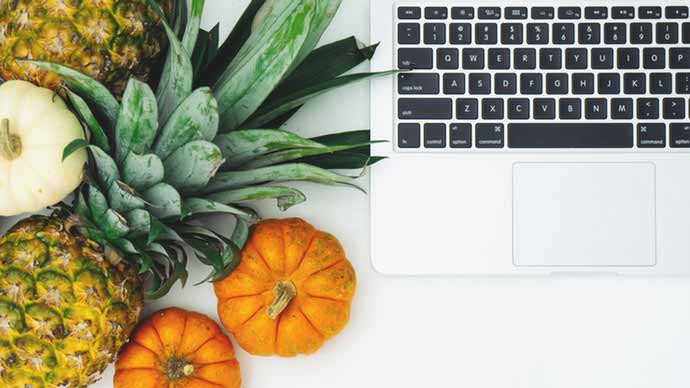There are three main reasons why you can’t stop emotional eating.
And according to a recent survey by Precision Nutrition, you’re not alone.

3 reasons why you can’t stop emotional eating
Notice when intense cravings happen.
Awareness is key.
There’s often a pattern that’s triggered by certain thoughts, feelings or situations.
#1 You’re restricting certain foods or calories on a “diet” or restrictive meal plan.
That’s why I find it crazy that so many of us go to them as solutions to the challenges of cravings, overeating, stress and emotional eating. Yup, often they’re the CAUSE!
Yes, read that again.
So the solution is to stop dieting and going to restrictive meal plans to improve your health and well-being. That’s why I take a non-diet, no meal plans approach. You focus on improving your eating behaviors and relationship to food and your body (and your entire self-care) to help you feel and be your best self.

Next notice your energy levels when you’re eating.
# 2 You are exhausted.
Maybe you’re not sleeping well (or your list of reasons) so you find yourself in a pattern of drinking tons of coffee and/or reaching for sweets to get through another day – to give you more energy.
Nope you don’t have a problem with sweets. You’re exhausted. Let’s figure out how to get you sleeping better or whatever is causing your fatigue.
# 3 You’re stressed.
Why do you crave crunchy potato chips every Sunday night (or every evening)? Are you feeling stressed and anxious about heading back to another day in a toxic work environment?
Again, it’s common for us to try and solve cravings or overeating by dieting or restricting that specific food — when it’s not a food problem. The challenge is coming from feeling stressed or ___(lonely, angry, sad etc.) about work or __ (whatever the cause is for you).
The solution is to recognize your triggers and then find alternate solutions to break this unwanted pattern.
The list of stress, emotional eating, and cravings triggers is endless and unique to you.
Want more insights into how you can stop emotional eating? Reach out, I’d love to help. ♡ Tanya
P.S. Like what you’re reading? Join my free newsletter Reclaiming Wellness and receive wellness wisdom in your inbox!



